 Fr. Kevin Tumback in his youth Fr. Kevin Tumback in his youth When Fr. Kevin Tumback (Pastor, All Saints Parish in Lethbridge) speaks about his past, it’s clear that a pivotal figure is his father, Andrew Clement Tumback, known to all as Tiny. Tiny was the second youngest of twelve children and spent most of his life farming in Eston, SK. He was married to Audrey for 61 years, had seven children (living) and died at the age of 93, having witnessed the ordination of two sons and the arrival of eight grandchildren. Yet these many achievements do not begin to capture the essence of a man who, according to Fr. Kevin, was introverted, reflective and well-read. “My father was liked and respected,” Fr. Kevin said, “his funeral was packed.” Tiny’s influence was perhaps felt most keenly by his children, whom he formed in faith, mostly by setting a good example. Fr. Kevin shared a seminal incident from his youth which speaks volumes. After an infraction, young Kevin was punished by having to clean out the chicken coop, not the Tumback coop but the neighbour’s. “It was hot and stinky work,” Fr. Kevin recalled. “It was my punishment but Dad was working right there beside me the whole time.” Tiny was instinctively demonstrating the way God the Father never leaves us, even as we face the consequences of our own sins. Though a cradle Catholic, Tiny didn’t take his faith for granted. He had a firm devotion to the Rosary, the Sacred Heart and especially the Eucharist. He was an altar server well into his senior years to demonstrate one’s duty to participate at the Holy Mass. He also helped out neighbouring farmers and delivered eggs and milk from the Tumback animals to needy families. Tiny Tumback wasn’t a demonstrative person. He practiced what Fr. Kevin refers to as the “ruffled hair” form of affection. “Dad treated each of us differently… but we all understood it. You need to acknowledge (each child’s) strengths and weaknesses and Dad was good for that… One of my father’s nicest compliments, the day after I was ordained was, ‘Well son, if you’d gone straight from high school into the seminary you would have made a really lousy priest. But with your years of experience you’ll make a good priest.’” Tiny was referring to Fr. Kevin having worked 15 years in the corporate sector before joining the seminary.
1 Comment
Dear Sisters and Brothers in Christ, The reported discovery of the remains of 215 children at the former Kamloops Indian residential school has shocked the consciousness of our country, its people, the Church, and the world to the painful and dark reality of our Canadian Indian residential school system. This has also surfaced once again the suffering and trauma which continues to mark the lives of our indigenous brothers and sisters and their communities. On behalf of the people of the Diocese of Calgary, I personally share in this devastating sorrow and express my deepest regret at the loss of the lives of these children and the enduring pain which residential schools have caused within our indigenous communities. In solidarity, we must act in the pursuit of justice, reconciliation, and true healing. As the Bishop of Calgary, through this statement, I personally recommit the Diocese in expressing the apology and regret made by the Bishops of Alberta and the Northwest Territories in 2014 to our indigenous brothers and sisters. We, the Catholic Bishops of Alberta and Northwest Territories, apologize to those who experienced sexual and physical abuse in Residential Schools under Catholic administration. The picture and images of children’s shoes placed at the front steps with lit candles remind us of the voices of these children and the need for restorative justice. In prayer, we unite ourselves with our suffering brothers and sisters so that the Spirit will show us the path of solidarity in promoting true justice and healing. For those families deeply impacted, we ask for the intercession of St. Kateri Tekakwitha for them to receive consolation, healing, and strength. Sincerely Yours in Christ, +William T. McGrattan Bishop of Calgary June 4, 2021
The statement of Bishop McGrattan on the murder of a Muslim family in London, Ontario was read by Fr. Adrian Martens in his position as Coordinator of Ecumenism and Inter-Religious affairs at a rally and peace march across City Hall, Tuesday evening, June 8, 2021.
================== June 8, 2021 Dear Brothers and Sisters, On June 6, 2021, a family out on a walk was targeted for their Islamic beliefs. This attack has resulted in the deaths of four family members including a girl as young as 15, and a nine-year old boy still in hospital. This attack was truly heinous and against what we all stand for as Canadians. Firstly, I want to express the closeness of the Catholic and Christian community to the Muslim community. Over the years, side-by-side, we have spoken out jointly on the Rohingya Muslim crisis and the terrible mosque shooting in Quebec. Again, today we stand with Muslims against all religious hatred or intolerance of religious belief and practise. We stand together to denounce all forms of fear, hatred, and aggression against any person based on religion, gender, or culture. As our teaching at the Second Vatican Council states: “…the right to religious freedom has its foundation in the very dignity of the human person as this dignity is known through the revealed word of God and by reason itself. This right of the human person to religious freedom is to be recognized in the constitutional law whereby society is governed and thus it is to become a civil right,” (Dignitatis Humanae, 2). We, Muslims, Christians, and people of goodwill, must stand together to fight against intolerance and ignorance of religious belief or practise and protect this freedom which is a basic civil right. May we continue to advance the great work we have done together with the Calgary Interfaith Council, Habitat for Humanity, Calgary Catholic Immigration Services, and other venues. May we be reminded that there are more things that unite us than what divides us and that we must stand together against hatred, violence, and religious intolerance. Yours in God, +William T. McGrattan Bishop of Calgary Download Letter in PDF Let us join in prayer:
Sometimes children reveal experiences which then help encourage revitalization. Even simple, trivial remarks influence choices to improve our normal state. Each day contains invitations to do and be better – to better show love. There is a story that I often have opportunity to share which I think illustrates this point. At that stage of our family life it was my more common practice to attend monthly recollections – reflections offered to men that helped us in our lives as husbands, fathers, and professionals. My wife herself enjoyed similar gatherings for women (and has done a better job of making these a priority in the ensuing years). While the content was always worthwhile, I don’t happen now to remember the particular topic of that evening. In the midst of it however, the priest mentioned his experience in the Confessional of commonly hearing wives and children speak of their fear in the face of husbands’ anger. And he thereafter continued with the rest of the meditation. When I returned home that night my wife asked how the recollection had gone and I explained the topic, which I then remembered. I also shared Father’s comment about fear in the face of husbands’ anger. And I added, “Is that funny?” By this I meant, isn’t it strange that some families have that experience. My wife replied, “Not really.” Having not experienced abuse in her childhood, and more importantly to me, my having never been violent, I asked her what she meant. She commented further, “Sometimes your anger seems so big.” That whole exchange has remained with me since then. And I began paying attention. I noticed my own response to being around other men when they exhibit ‘big anger’ and how their families did as well – my work as a marriage & family therapist sometimes places me in the midst of such experiences. I won’t argue that anger is never appropriate, or that being loud isn’t sometimes useful for drawing attention where needed. Neither will I deny that some women struggle with expressions of their own anger; please remember that I have lived with nine daughters. But I echo Aristotle who wisely commented that when, to whom, about what, and with what intensity we express our anger are also important considerations. The fact that it is common for wives and children to be fearful in the presence of their husbands and fathers should make us pause. Communication, of which anger is a subtype, is meant to share and benefit relationships. Non-destructive argument is meant to advance better ways by which to relate. And relationships are expressions of love, whether conjugal, paternal, platonic, or simply human. Is our anger in the loving service of justice, or is it prideful self-assertion? One of the readings at our wedding was from 1 John. There the beloved apostle writes that we love because God first loved us (verse 19); we chose this as a motto for our family. But in the verse right before it, the Holy Spirit communicates through John: “In love there can be no fear, but fear is driven out by perfect love: because to fear is to expect punishment.” That this Fathers’ Day would see a renewal of and recommitment to love in all families.
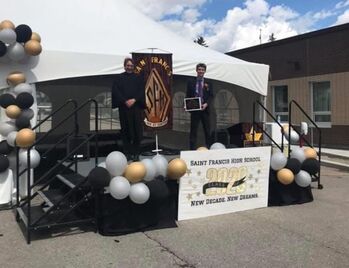 For a second year in a row, gathering restrictions will prevent graduates from Calgary Catholic high schools from participating in the types of graduation ceremonies that many of us associate with a typical Grade 12 year. Gone are the cap and gown ceremonies with families packed into the auditorium, the valedictory address delivered to thunderous cheers from the assembly and the banquet meal shared together with peers. In our Catholic high schools, this also means that the traditional celebration of a school graduation Mass with classmates and faculty will not be proceeding. Many of us remember these traditions fondly and feel a sense of remorse for this year’s graduates that they will miss these familiar rites of passage. However, school communities have responded to the challenges with innovative solutions and alternatives. Graduation is too important to miss – this is the culmination of many years of effort for students and their families. Graduation also holds a hopeful promise for the future, a time where young women and men further explore their place in the world and come to a deeper understanding of themselves and God’s creation. As a Catholic community, we fail to respond to the goodness and blessings abundantly displayed around us when we miss the opportunity to celebrate our graduates. This year, our high schools are building on what they learned last year to create personal and meaningful celebrations to acknowledge students and their families. A special Mass for graduates was celebrated by Bishop McGrattan at the Shrine Church of Our Lady of the Rockies and the recording will be shared with every graduate and their families. Schools have recorded valedictory speeches and greetings from school staff to share electronically. And, taking advantage of good weather and abundant space outdoors, schools are arranging “drive-through” events and photo opportunities for students to receive their certificates in a safe manner. Far from being a token celebration, this adapted way of marking graduations allows for an intimate and personal celebration for each individual. As Bishop McNally High School principal, Neil O’Flaherty affirms, “Despite students being asked to repeatedly acclimate to the uncertainty of the coronavirus, celebrating one’s graduation, with family members lovingly alongside, is one tradition that COVID 19 could not prevent. Each high school has made the event uniquely their own and, as we have done at Bishop McNally, each student’s personal accomplishment has been individually (and collectively as a class) celebrated, in a safe manner, with a creative and memorable flair befitting any graduation, past or present.” Catholic schools have felt particularly called to create spaces of welcome and encouragement for our students during the pandemic. Faced with restrictions on gathering, we are paying special attention to engaging, seeing and celebrating each student. Mackenzie McManus graduated in 2020 from All Saints High School under similar conditions. Her grad class was the first graduating year from the high school in Calgary’s deep south and she fondly remembers the experience of the drive-through grad. “The important part of graduation for me was to be able to walk the stage and get a picture in my cap and gown”, says McManus, “The drive-through grad did that quite nicely.” She noted how much effort it took for staff to arrange the drive-through. Allowing that special time for each graduate extended the event to three days for teachers and support staff who took turns holding congratulations signs and cheering for each student who came through. Please pray for all Catholic school graduates and their families during this month of June. May the experience in our schools equip them with the knowledge and wisdom they need to continue to grow, learn and serve. A prayer for Graduates Lord God, giver of all wisdom and grace, bless the students who have worked diligently to prepare for graduation. Guide and direct them as they go forth to encounter new opportunities and challenges in the world. As they continue to nurture their gifts, help them to stand up for their Christian beliefs and to further develop values and virtues that promote communities of fellowship and caring. May they always act with responsibility and practice integrity that they may be living witnesses of your word and instruments of your peace. Through Christ our Lord. Amen
In 1673, St. Margaret Mary Alacoque received a vision of Jesus’ compassionate heart, pierced by the sins of the world, which gave impetus to the devotion of Sacred Heart of Jesus. St. Margaret Mary also received private revelations from Jesus on June 16, 1675. Read more The Church celebrates the Solemnity of the Sacred Heart of Jesus on the Friday following the second Sunday after Pentecost. The term "Sacred Heart of Jesus" denotes the entire mystery of Christ, the totality of his being, and his person considered in its most intimate essential: Son of God, uncreated wisdom; infinite charity, principal of the salvation and sanctification of mankind. The "Sacred Heart" is Christ, the Word Incarnate, Saviour, intrinsically containing, in the Spirit, an infinite divine-human love for the Father and for his brothers. (Directory on Popular Piety and the Liturgy). Sacred Heart of Jesus Resources
Javier Martinez had just removed his face shield and mask when a woman suddenly appeared in the room and approached him. The woman was a resident of the memory care wing of the seniors’ residence where Martinez was working. She was also positive for COVID-19. “It happened so fast and I remember thinking, ‘it’s highly probable that I’ve got COVID,’” recalls Martinez, a registered nurse and the father of five. He was right. Martinez is a clinical leader in the supportive living section at St. Marguerite Manor, a Covenant Care home in northwest Calgary. Two residents at that facility died in the second wave of the global pandemic declared in 2020. Martinez, however, was infected in Edmonton. He was there in November 2020 to provide support in a seniors’ care home hit much harder by the second wave of the pandemic. In addition to several deaths and widespread infection, many staff at that home were infected and unable to work. While his first test was negative, Martinez developed body aches and a headache soon after his return to Calgary. The nurse knew he had COVID-19 well before the second test yielded a positive result. By then, he and his wife Colette had already discussed what they would do to keep the family safe. They did what they could to keep their kids, ages 13 to three, away from their dad. Still, the oldest and youngest, two of their three daughters, were infected. Both children weathered the virus well. “We were fortunate,” says their dad. 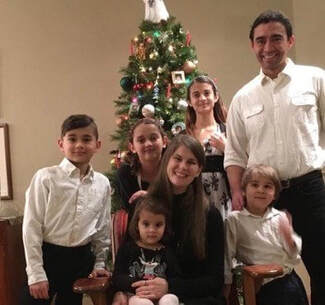 Javier and his family Javier and his family A culture of care More than a year after the pandemic began, vaccinations and the careful of use of PPE (personal protective equipment, like masks) have imbued Martinez’s view from the front lines with a great deal of hope. In the early days, “there was a lot of uncertainty because it was brand new and we had to deal with a lot of changes. Provincial orders from the Chief Medical Officer of Health changed often, sometimes daily. One of the most dramatic shifts was the move to restrict visitors. That was really tough. Some of our residents have large families who are very close. I had to explain the health rules to many people and because these were mandated changes, we didn’t have much flexibility. This was very tough on residents and their families.” Careful adherence to the rules definitely kept people safe, says Martinez. Only one resident and a few staff at St. Marguerite Manor contracted COVID-19 in the first wave. The second wave was harder, but by then, something else was also at work. He says some residents talked openly about having lived good lives. They were not afraid to catch the virus and die. What they did not “want was to be the person who brought the virus into the manor. That care for other people was very strong.” Now that residents and most staff are fully vaccinated, life at the manor is more relaxed. Visitors are allowed in after screening and as of June 1, staff no longer have to wear face shields over their masks. “It’s amazing to see how things have changed for seniors in supportive living and long-term care because of the vaccinations,” says Martinez. Looking back, Martinez thinks about what the pandemic has taught him as a Catholic man, nurse, husband and father. He knows the people he works with were negatively impacted when denied access to family and friends. He also knows many of them weathered the storm with grace. “I guess I think about how we’re called to serve our neighbours—and to serve the best interests of our neighbours,” says Martinez. A parishioner at St. Gerard’s parish in Calgary, he also thinks about how the Catholic community supported that part of the gospel message. As he sees it, sometimes service is as simple as doing what’s best for others. Written by Joy Gregory for Faithfully
Photos courtesy of Javier Martinez One of the most powerful things I have ever done as a Catholic Educator is to open a new Catholic School in Airdrie. The name selection process was part of the beginning of creating our new school. In hindsight, it is amazing how important a school name is, especially a Catholic School name. On the day that our new school name was going to be announced, I was away on a retreat. Coincidentally we were doing the Stations of the Cross and I strategically volunteered to do the readings for Station 6: Veronica Wipes the Face of Jesus. Later that day when our school name was announced at the retreat, many of my coworkers were amazed that I had been selected to do the readings for Station 6. They believed it was divine intervention. I really didn’t have the heart to tell them that I had requested that station knowing that St. Veronica was our new school name! A month later, in May of 2019, we gathered together as a staff for the very first time. With our new teachers, admin and our District Supervisor of Catholic Education we began to explore all things about St. Veronica. There is no history or mention of St. Veronica in the Bible, nor is there any knowledge of her life before or after she wiped the face of Jesus. Yet, her single selfless act to wipe the face of Jesus on his way to crucifixion remains a keystone piece of the Stations of the Cross. Her veil, the Veil of Veronica, is a sacred artifact displayed once a year at the Vatican. Our goal that day with our staff was to generate a motto and a mission statement for our new school. The teachers reviewed scripture, watched videos and worked in groups to identify the significant characteristics of St. Veronica. It took a whole day but together they created our motto. First with three key words: Faith, Compassion, Courage. Then the teachers expanded the motto to create our mission statement: Inspired by Faith. Moved by Compassion. Led by Courage. I was so proud of our staff, as I truly believed they had captured the real essence of who St. Veronica was. These characteristics would form the foundation for students at our school. Our patron saint, St. Veronica, is the perfect example of how to use your faith, your compassion, and your courage to do the right thing, even when that is very difficult. This is a beautiful message to share with children. So many aspects of school life relate back to this gentle, faithful woman who choose to perform a true act of kindness when Christ needed it most. Connecting this to our ability to see Christ in others and to support the way Veronica supported Jesus is a powerful message for all students at St. Veronica School. When you ask, What’s in a name? I believe that at St. Veronica School the name Veronica challenges each of our students to be inspired by faith, to be moved by compassion for others and to let courage guide them to do the right thing. What better role model is there for children?
The vocation to teach is a great gift. To authentically live one’s faith life in a Catholic School unleashes the power of the Holy Spirit, drawing those who are searching, those who are yearning to grow toward God together. Being a witness to the mighty power of the Spirit I can testify to the fact that the Spirit is moving in our schools. I have been blessed to minister to the children through weekly gatherings in our gym under the auspices of “Hymn Sing” – a time of preparation for our school liturgical life – through song, scripture, and prayer. The tiny seeds that are sown grow in places and in ways that are surprising and lovely to behold. It was after a long weekend that a grade 3 student came running toward me in the hallway one bright Monday morning. “Mme, I have to talk to you. I had a dream last night and God wants us to have a Jesus Club at our school. I know that I love Jesus and I know that there are other kids who love Jesus too, but Mme, I don’t know who they are! We need to have a place, we need to have a time where we can find those kids and talk about this. Can you help?” This was the beginning of our school’s Jesus Club – an idea inspired by the Holy Spirit through the enthusiasm and energy of a child who wished to live her faith authentically. Throughout that school year, 108 students, one third of our school’s population, journeyed through our lunchtime Jesus Club, growing through scripture, prayer and games to walk more closely with Our Lord. 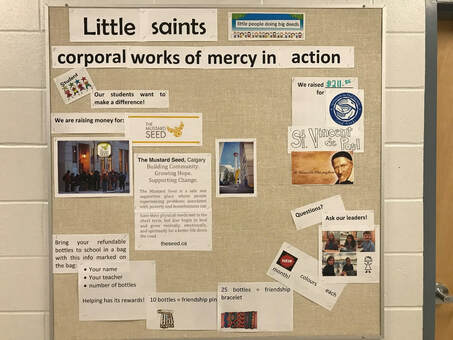 The following school year we began, through our Hymn Sing time, to explore how to live the corporal works of mercy as a response to that year’s faith theme “Knock and the door will be opened.” The call for us to care for the needs of the poor, the need of the sick, the needs of those who are enslaved resonated deeply with the students, especially with one boy. An idea began brewing within him. A call to action soon followed. He harnessed the energy and enthusiasm of 5 of his school mates, and they formed “Little Saints: the corporal works of mercy in action”. These children championed one bottle drive each month to raise money for the St. Vincent de Paul Society, the Mustard Seed, and Feed the Hungry before COVID closed our schools last year. Through their promotion of each bottle drive, they spoke to the student body, made posters, counted, and sorted bottles and made hundreds of friendship pins and bracelets as rewards for participants. These children who receive the Word with such loving fervor are examples to us all. They are the fertile ground on which the good seed falls and bears fruit. Their openness to the power of the Holy Spirit inspires their actions and forming tomorrow’s leaders. I am privileged to work with children every day in our Catholic schools. Their enthusiasm serves to inspire us to become like little children who receive the Word wholeheartedly and run with abandon into the vineyard of the Lord – helping His Kingdom come.
I’ve always been enthralled with the simplicity of the Christian dynamic summed up in two words: “come” and “go”. Christ’s call to his disciples and in fact to each one of us Christians is an invitation from Christ “come, follow me”. After living the experience and encounter with Christ, the disciples were commanded to “go and preach to all nations”. Simple but not exactly easy. When I came as pastor to Sacred Heart Church in Calgary the image of Christ’s beating heart has been an inspiration for the mission and work of our parish church. One paragraph in Pope Francis’ address to participants in the Pilgrimage of Catechists on the occasion of the Year of Faith struck me as pertinent to our church: I am one with Jesus and I go forth to encounter others. If one of these movements is missing, the heart no longer beats, it can no longer live. The heart of the catechist receives the gift of the kerygma, and in turn offers it to others as a gift. What a little word: “gift”! The catechist is conscious of having received a gift, the gift of faith, and he or she then gives that gift in turn to others. This is something beautiful. We don’t keep a percentage for ourselves! Whatever we receive, we give! This is not commerce! It is not a business! It is pure gift: a gift received and a gift given. And the catechist is right there, at the centre of this exchange of gifts. That is the nature itself of the kerygma: it is a gift that generates mission, that compels us to go beyond ourselves….And so it is: love attracts us and sends us; it draws us in and gives us to others. This tension marks the beating of the heart of the Christian, especially the heart of the catechist. Let us all ask ourselves: Is this what causes my heart to beat as a catechist, union with Christ and encounter with others? With this movement of “systole and diastole”? Are we being fed by our relationship with the Lord, so that we can bring him to others, and not to keep it for ourselves? (Address of Pope Francis, 27 September 2013) I felt convinced that our church had to bring that same dynamic of a beating heart to all who walks through our doors. Next we had to develop a pathway of evangelization for our work and we based it off of the chambers of the heart. Hospitality is the entry, discipleship and spiritual formation is the second chamber, worship is the height and most important chamber and last is sending out to evangelize. So our parishioners are encouraged to be drawn into this pathway of Christ’s heart. Of course the pandemic has impacted our ability and forced us to do things in different ways. It has definitely been a challenging time but I believe that the need and opportunities for evangelization are greater now that when the pandemic began. It still highlights the simplicity of the Christian call to enter Christ’s heart and allow him to send us forth. Jesus, gentle and humble of heart, touch our hearts and make them like your own.
Your priests are exhausted – like everyone else I suspect. It is a form of spiritual tiredness that comes when fathers are not able to be with their families as they wish. Certainly, it is tiring to care for a family, but then again, there is a gift of life that flows from being with your family as you care for them. Those fathers (and mothers) who labour in foreign countries to send back remittance monies to support their families know one thing for sure: phone calls and Facetime are just not enough. The priests of Calgary confronted this during the pandemic year because they are not “pious bureaucrats but pastors” (Pope Benedict’s phrase) – and they miss their family-flock. Yet they also know whose priests they are: Jesus Christ’s – and the Eucharistic Lord has never abandoned them. It was my surpassing honour to be invited by these very priests to lead them in a retreat in these – pray God! – waning days of the Pandemic. I wrote them a note: Do you remember the beginning of this annus horribilis? Celebrating the Easter mysteries with a few people in Church. Scrambling to find ways to render virtual that which is essentially incarnational – the Eucharist. Worrying about pastoral care and meeting payroll. Who can forget the Holy Father’s solitary Urbi et Orbi prayer for the end of the pandemic? His words still challenge: “We find ourselves afraid and lost in this time to choose what matters and what passes away, a time to separate what is necessary from what is not. It’s a time to get our lives back on track with regard to you, Lord, and to others,” And so it goes on month after month. Even the most introvert of us priests have been stretched thin by the dual experience of isolation from our people and still bearing the burden of their stress. As in all times of challenge, the best and the worst of people emerged: politics and medicine divided our communities. And what about each of us? In this Retreat we will support each other as every morning we reflect on the challenge of the Holy Father’s solitary Urbi et Orbi prayer for the end of the pandemic: “We find ourselves afraid and lost in this time to choose what matters and what passes away, a time to separate what is necessary from what is not. It’s a time to get our lives back on track with regard to you, Lord, and to others.” What can one new parish priest say to such a crew of faithful ministers? Hopefully, only what Jesus wants him say. I think it is always just a variation of Christ looking a priest in the eye saying, “You are my priest, and I love you.” Looking a priest in the eye? Leading a retreat in pandemic times has a very strange quality: it is ‘virtual’. Conscious of a hundred pairs of priestly eyes, I could only see a checkerboard pattern of faces. But from the start as I sat and listened as they greeted each other joyfully I know that what was before me was not “virtual” at all – it was a quilt of servants of the sacraments woven by the Spirit. A quilt sustained by the prayers of God’s People in Calgary What did the Spirit lead us to reflect on? Simply, that which is the very essence of a priest’s life: the Holy Eucharist. Indeed, we have not been able to celebrate the sacred mysteries with many others but we priests have still been able to meet our Eucharistic Lord daily. We long to respond to the longing of our people for Communion – but we also are called to respond to the intimate longing that the Lord has for each of His priests. Did you know that there are certain prayers in the Ritual of the Mass that a priest says quietly – or to use an old phrase “secretly”? For example, as he purifies the vessels from which he has just partaken of the Body and Blood of Christ the priest whispers, “What has passed our lips as food, O Lord, may we possess in purity of heart, that what has been given to us in time may be our healing for eternity”. Every Friday morning those who pray the Divine Office recite Psalm 51 and say, “then in the secret of my heart teach me wisdom”. What is the wisdom of these intimate or “secret” prayers? This was the theme we explored in the Lord. And the Lord was gracious as He always is. Retreats are not ever times of running away from reality – no that would be Netflix and YouTube. In a retreat one runs into the heart of reality – God’s heart. It is not a time for pious words or flowery ideas – but for the Word that meets our reality. That is what the Eucharist is: our offering of the reality of our lives to God and God giving us the Real Presence of His Son. The questions were real and raw: how do live with chaos as the rhythm of life is turned upside down? What will priesthood look like after this immersion in a separated virtual society? It seems like priests are both under a microscope and yet marginalized like the Church – where are we being led? To the Eucharist – always to this source of our very being. And we found in the secret prayers of the answer of Jesus, “Do not be afraid, it is I”.
As a convert to Catholicism from Anglicanism, I am probably not the most qualified person to write here about the Sacred Heart of Jesus. It was never a devotion I had ever heard of growing up, being a rather marginal devotion even in the most Anglo-Catholic of Anglican circles. The pre-Reformation English devotion was towards the Five Holy Wounds, and not necessarily the Sacred Heart, despite its nascent cultus. Apparently, it isn’t necessarily the most widely accepted devotion either in Eastern Christian circles, being largely seen as a Latin introduction. It makes sense — St. Margaret Mary Alacoque, the main visionary of the Sacred Heart, lived in the 1600s, after the Reformation, and long after the Great Schism. Yet, something that we do VERY well in the Anglican world is hymnody, and this tradition has happily been carried into Catholicism by many notable converts. And so, for this Feast of the Sacred Heart, I’d love to share one of these hymns. “There’s a Wideness in God’s Mercy” is written by Fr. Frederick W. Faber, Cong. Orat., convert to Roman Catholicism, founder of the Brompton Oratory, and an associate of St. John Henry Newman. It is sung to a myriad of different tunes, yet the words ring true no matter the music.
 Now, it may not be immediately obvious why a hymn on God’s mercy is acceptable for the feast of the Sacred Heart. However, when we pray to the Sacred Heart, what is our petition? — “Sacred Heart of Jesus, have mercy on us.” In His apparition to St. Faustina Kowalska, Jesus Himself says: “My daughter, know that My Heart is mercy itself. From this sea of mercy, graces flow out upon the whole world.” The Sacred Heart is an ocean of mercy, vast and endless, in which we find every gift that we need. Jesus’ Sacred Heart is His human heart, the one that endured everything on Earth for our sake. This is the Heart pierced at Calvary, in salvific sorrow, and so it is only natural that Christ will feel the little miniature crucifixions that we endure keenly. His Sacred Heart knew the death of St. Joseph, of St. Lazarus, and so He knows our griefs intimately too. His Sacred Heart knows temptation, as it endured it for forty days in the wilderness. It knows failure, being betrayed in Gethsemane, by Peter’s threefold betrayal, by however many daily disappointments Christ felt amongst the people of Nazareth. Yet, Jesus is able to upbraid his disciples while remaining patient, compassionate, and loving. This is the Heart that will come to judge ours at the end of time, in justice, rendering to us our due. Yet, do we turn to the Sacred Heart now, trusting in the ocean of graces contained therein? Do we bring Jesus our sorrows great and small, knowing that His Sacred Heart has been moved to tears too? Do we go to the Sacred Heart when we fail, knowing that He alone has the justice, wisdom, and kindness to invite us on a journey of metanoia?
Yes, we are sinful people. This cannot be denied. We, as Christians, reject the Sacred Heart daily in some small way, to say nothing of the secular culture around us who mocks this Heart who can do nothing but will our good. And yes, this breaks the Heart of our dearest Lord. He spreads a banquet wide before us; we decide to stay home. He invites us into the dance of love; we say our dance cards are full and our feet hurt. But this is the Heart of Jesus in action! If the same had happened to us, we would feel hurt, rejected, bitter, sullen — yet, the Sacred Heart keeps on loving us and loving us, willing our good, showing us mercy. His Heart can out-love any excuses or sinful rejections we throw His way. On the other hand, we also easily reject the Sacred Heart by our limitations we place on God’s love. Yes, there are a lot of precepts and regulations in our faith, designed to stir our souls to fervour. But how many people do we know who say: “I was raised Catholic, so I know about how you have to [insert rule here].” We give people no access to Christ’s Sacred Heart by introducing them to faith as a set of rules and regulations, rather than introducing people to the Lover of their souls: tender, compassionate, eager to strengthen and draw to greater heights. Worse yet, we teach that Jesus has no love in us, looking down from the right hand of the Father in perpetual frustration, anger, and disappointment, ready to reject us for the sins we commit. We reject Christ’s Heart often — but even in mortal sin, God’s love can reach deeper and transform us. If the penitent thief could be forgiven completely by Jesus in the moments when He was being offered up as expiation for every last sin we commit, then even our sins that wound Christ most deeply can be absolved through our contrition. So, run! Run to the Sacred Heart — for by the breaking of His Heart we are saved!
Dear Sisters and Brothers in Christ, The reported discovery of the remains of 215 children at the former Kamloops Indian residential school has shocked the consciousness of our country, its people, the Church, and the world to the painful and dark reality of our Canadian Indian residential school system. This has also surfaced once again the suffering and trauma which continues to mark the lives of our indigenous brothers and sisters and their communities. On behalf of the people of the Diocese of Calgary, I personally share in this devastating sorrow and express my deepest regret at the loss of the lives of these children and the enduring pain which residential schools have caused within our indigenous communities. In solidarity, we must act in the pursuit of justice, reconciliation, and true healing. As the Bishop of Calgary, through this statement, I personally recommit the Diocese in expressing the apology and regret made by the Bishops of Alberta and the Northwest Territories in 2014 to our indigenous brothers and sisters. We, the Catholic Bishops of Alberta and Northwest Territories, apologize to those who experienced sexual and physical abuse in Residential Schools under Catholic administration. The picture and images of children’s shoes placed at the front steps with lit candles remind us of the voices of these children and the need for restorative justice. In prayer, we unite ourselves with our suffering brothers and sisters so that the Spirit will show us the path of solidarity in promoting true justice and healing. For those families deeply impacted, we ask for the intercession of St. Kateri Tekakwitha for them to receive consolation, healing, and strength. Sincerely Yours in Christ, +William T. McGrattan Bishop of Calgary
|
Author
Catholic Pastoral Centre Staff and Guest Writers Archives
July 2024
Categories
All
|
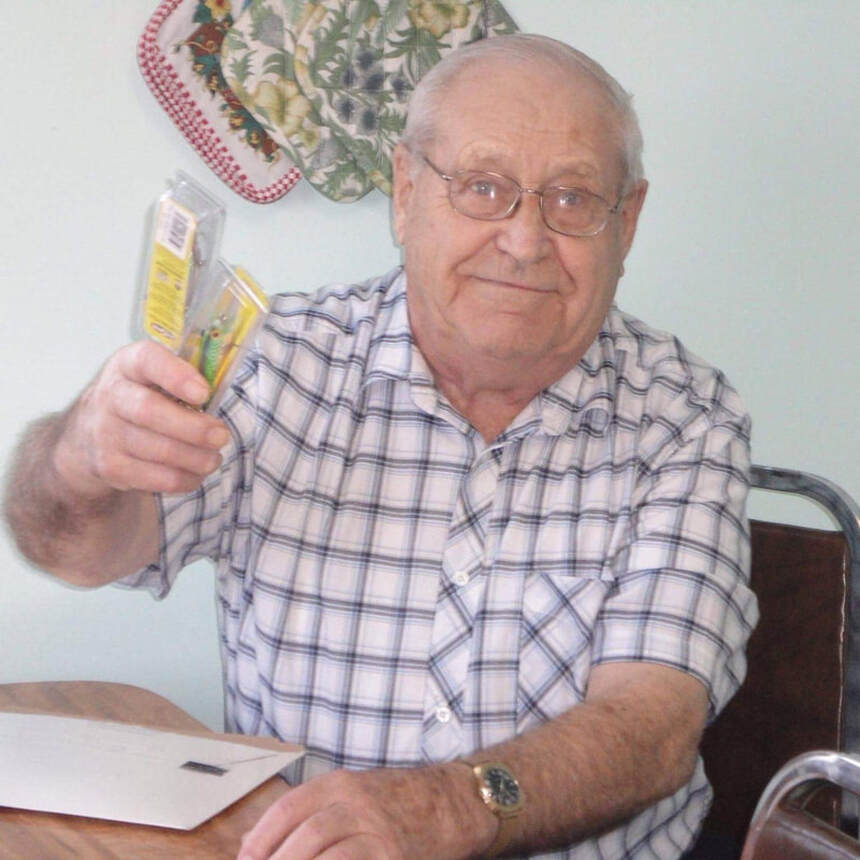
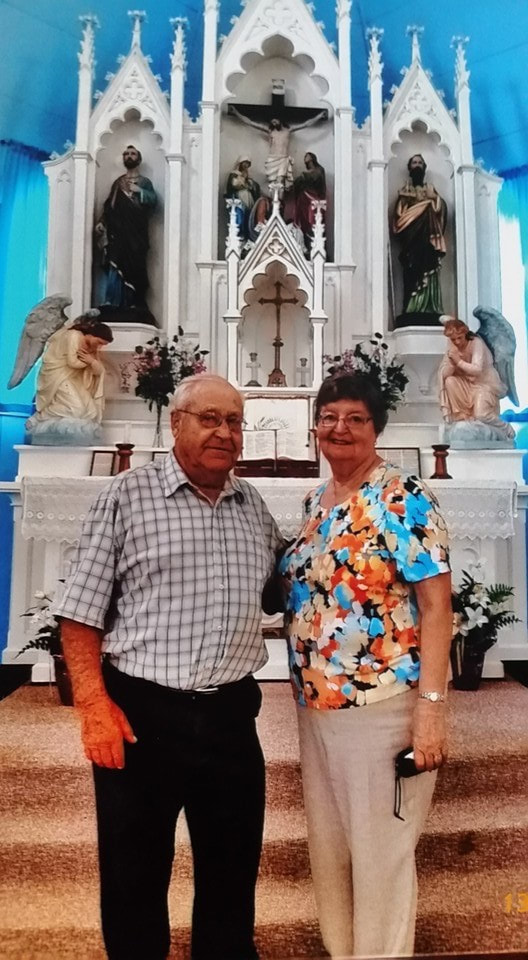

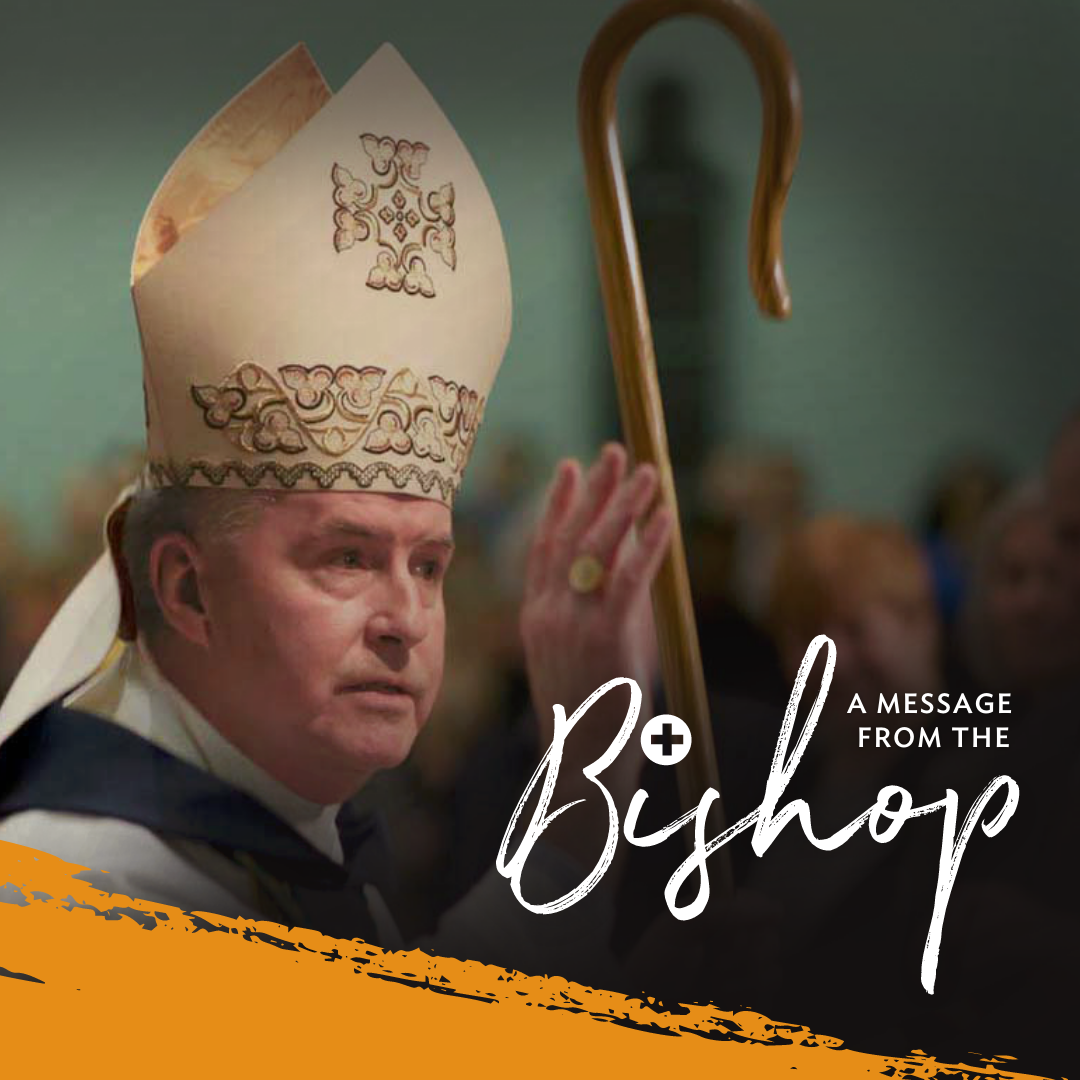

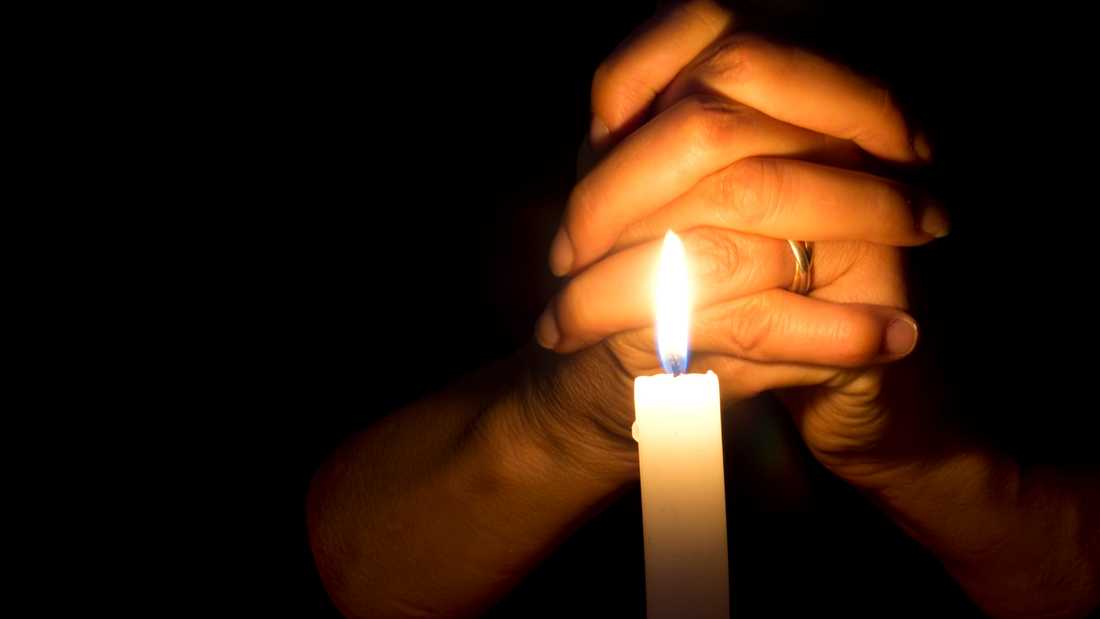


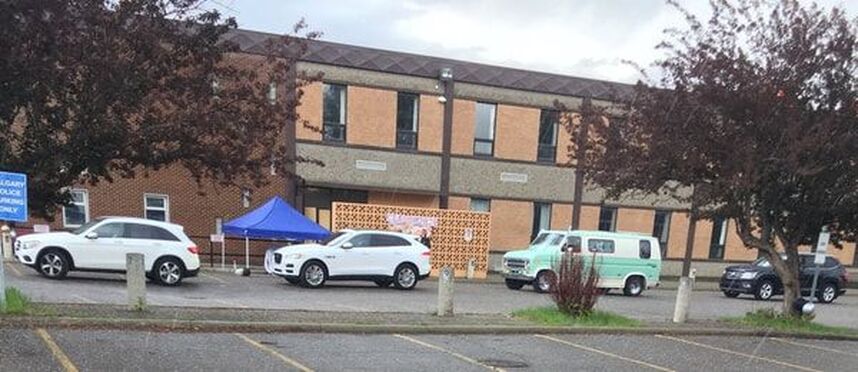

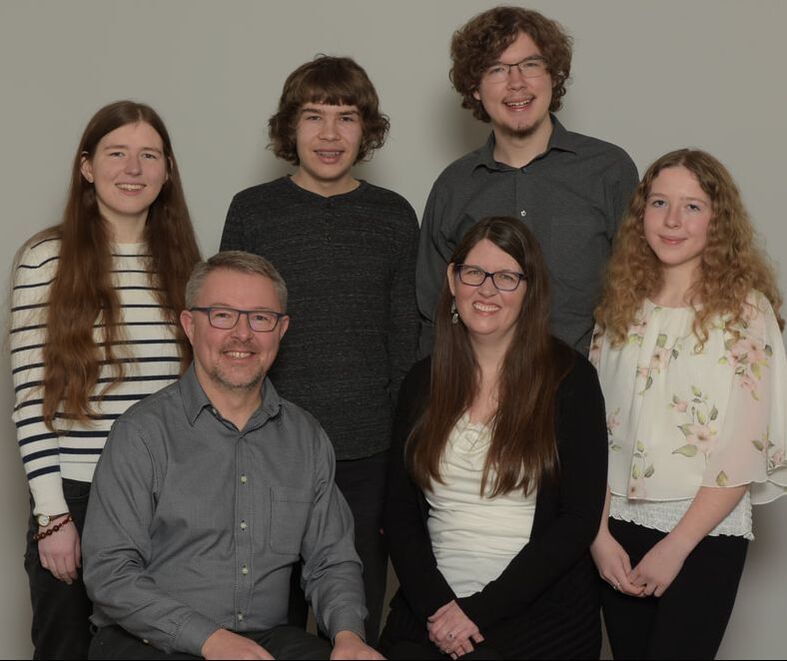
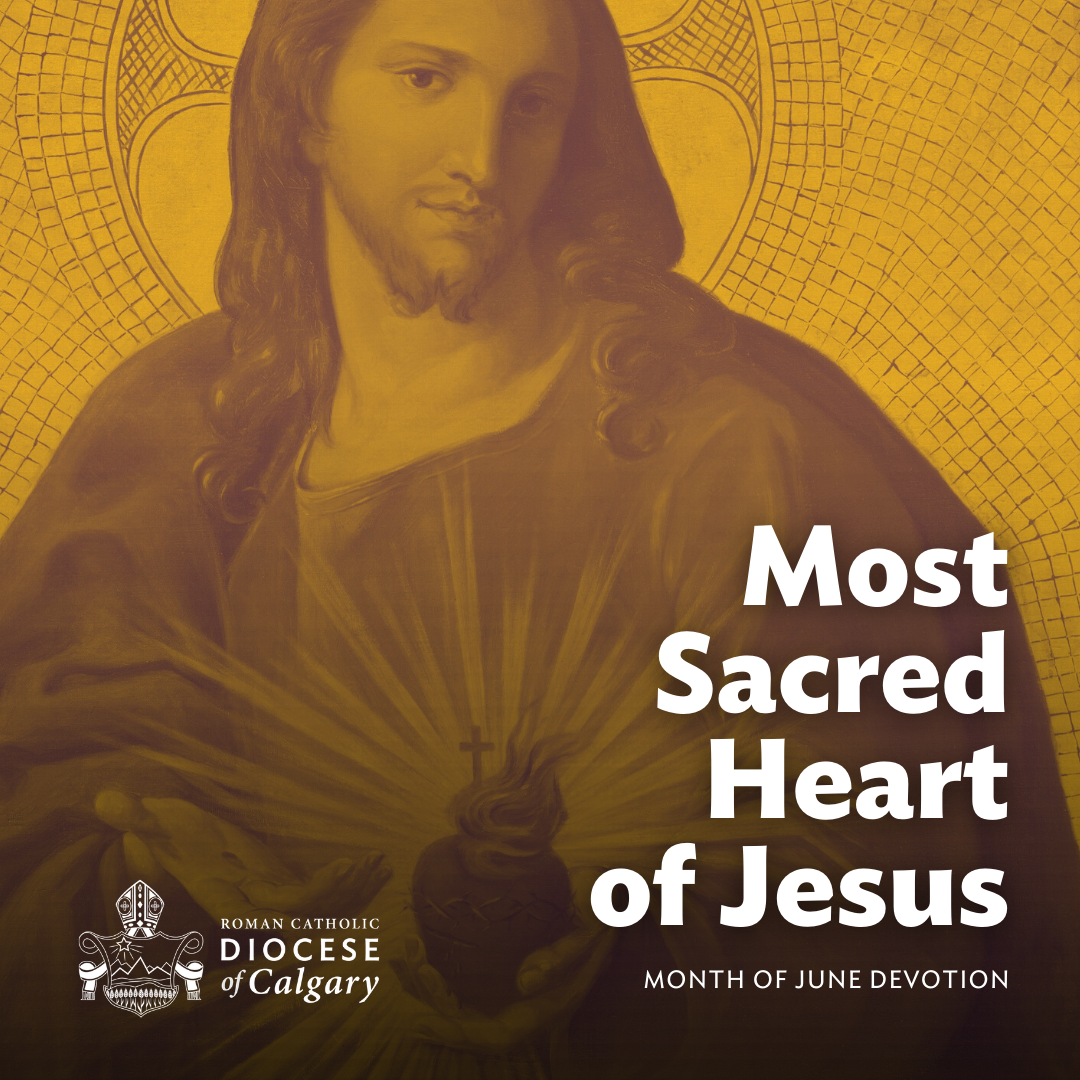
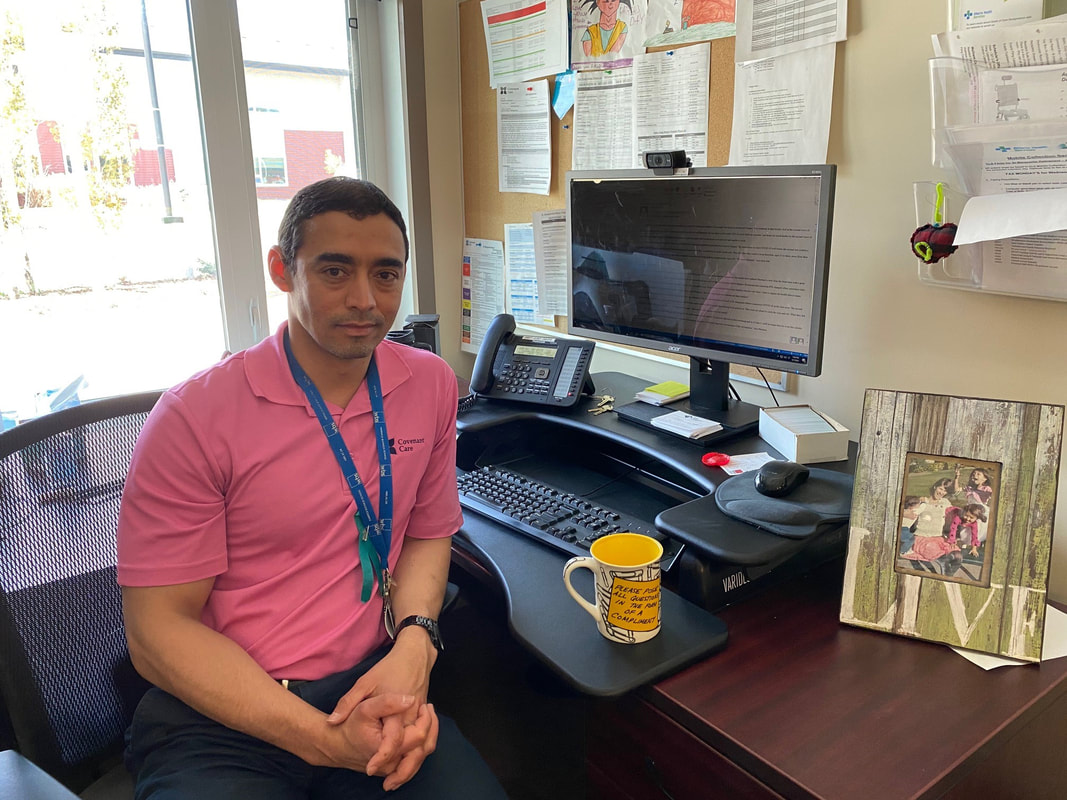




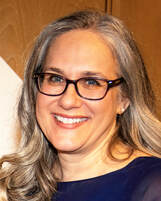
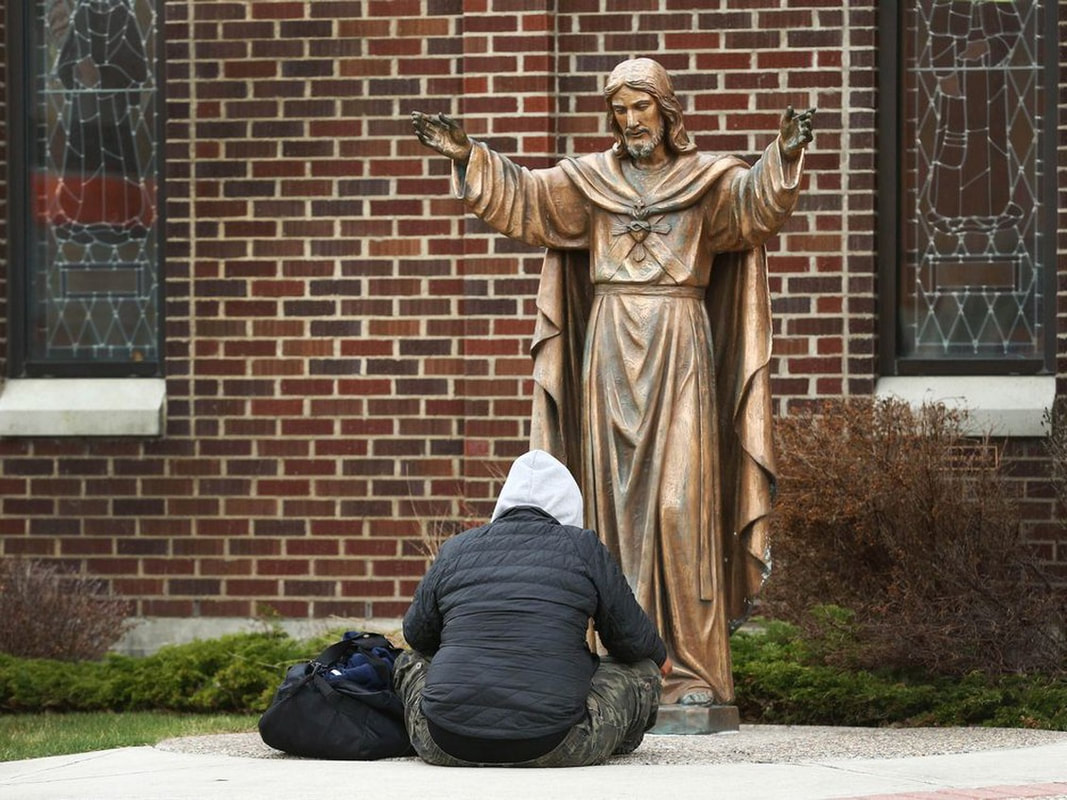
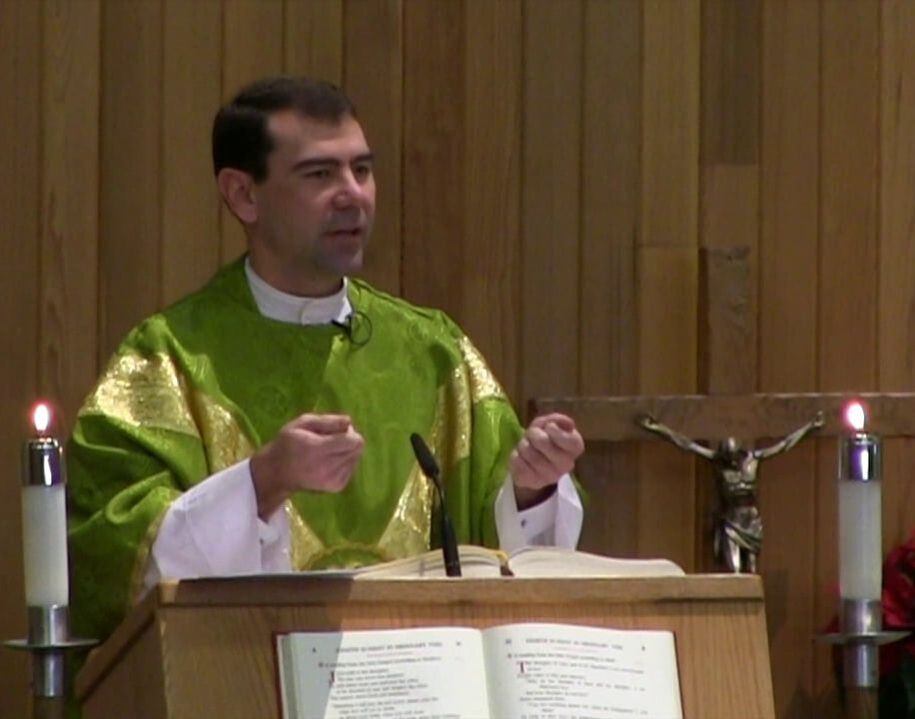
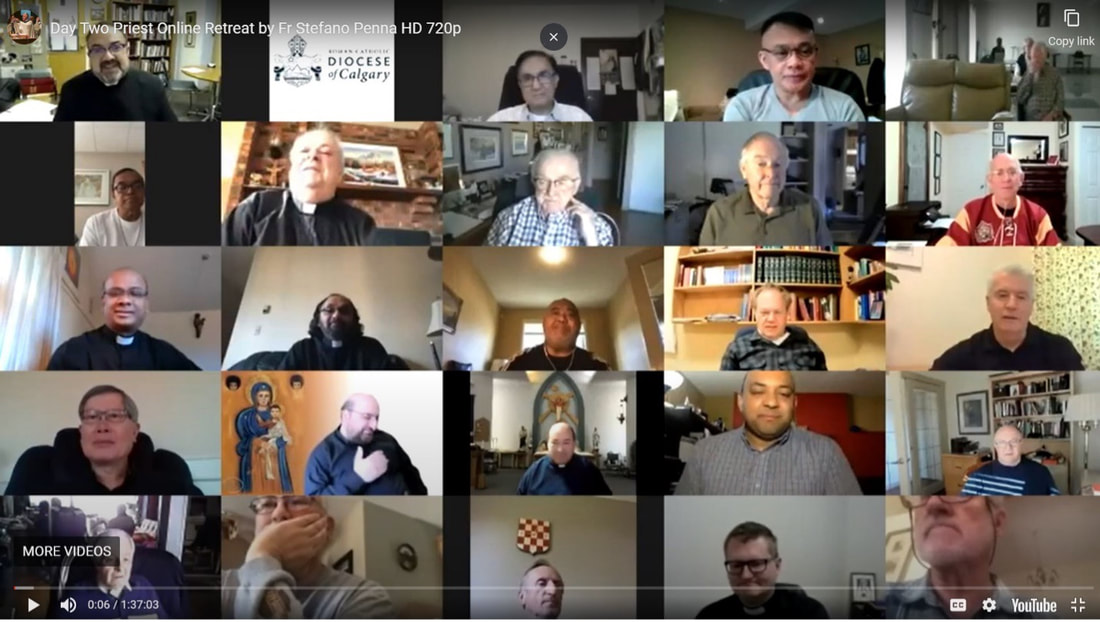
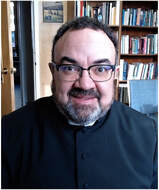

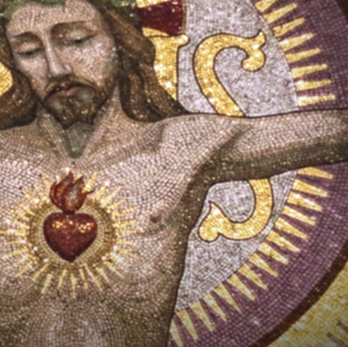


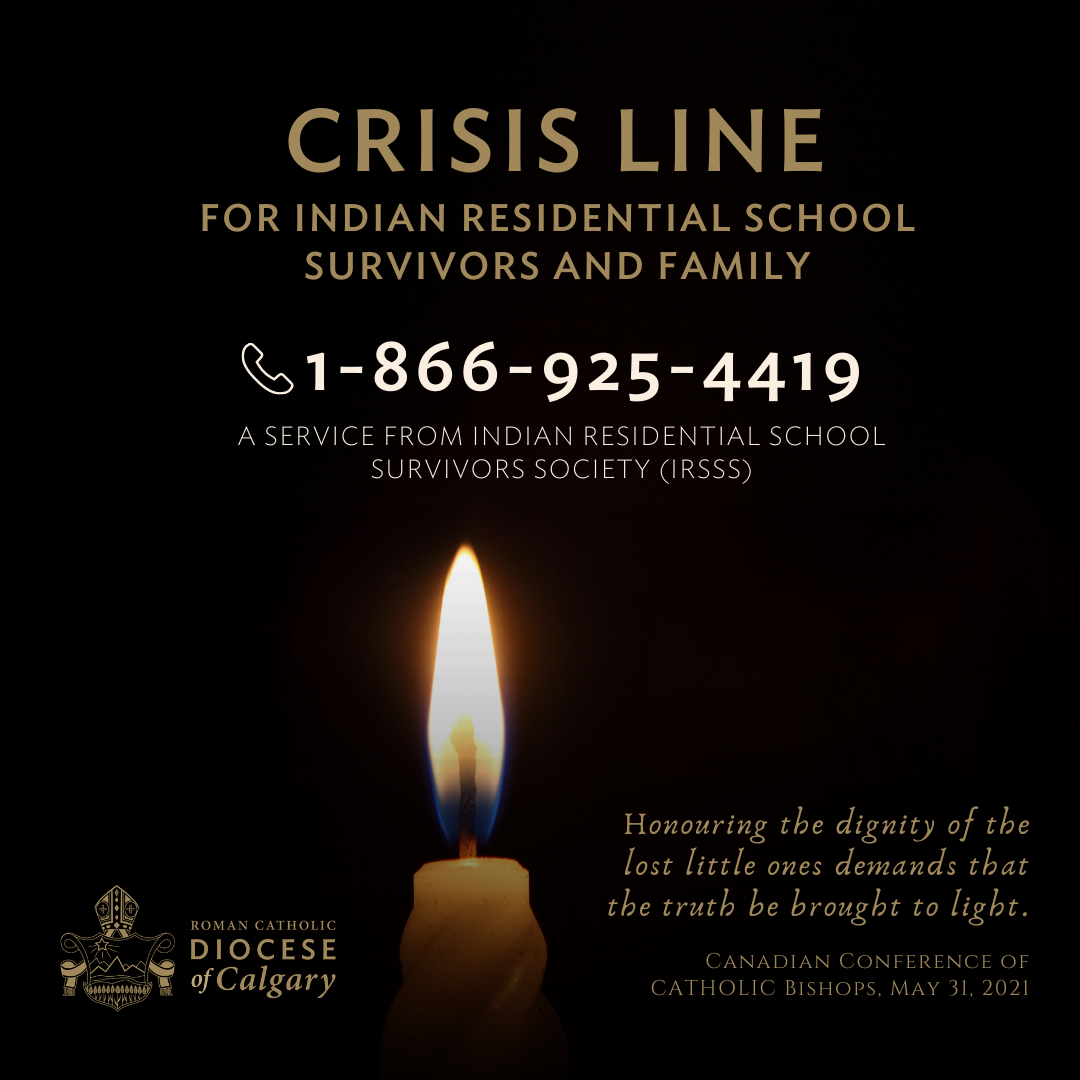
 RSS Feed
RSS Feed